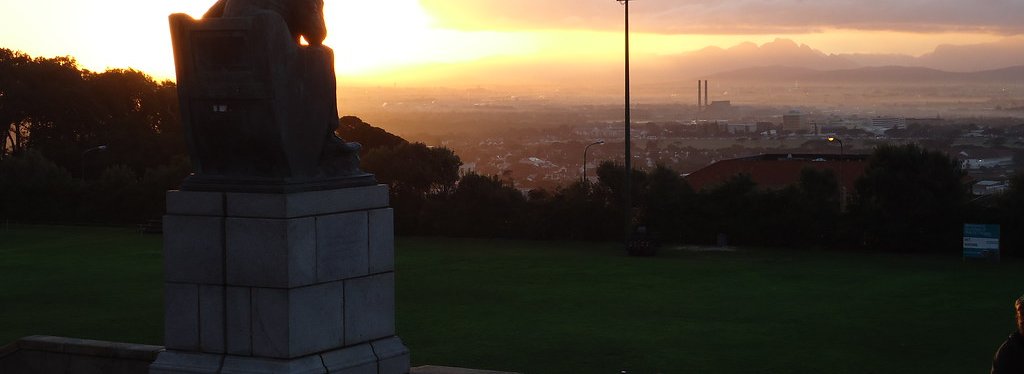| 7 mins read
The contemporary debate in UK higher education about the need to “decolonise the curriculum” stems in large part from the pressure applied by a sustained student‐led movement whose grievances reach into and beyond the classroom.
While inspired by movements in the US and South Africa, British struggles are profoundly shaped by the particular challenges facing students of colour living and studying in the UK.
More people of colour are attending university than ever before, but achieve ‘lower levels of attainment and poorer graduate prospects than their White British classmates', according to a Runnymede Trust report. Explaining these disparities, the report's authors concluded that UK universities have ‘proved remarkably resilient to change in terms of curriculum, culture and staffing, remaining for the most part “ivory towers” – with the emphasis on “ivory”’.
US based movements have tended to focus on preserving and expanding the programmatic victories secured by an earlier generation of activists. By contrast, UK based campaigns situate the classroom as a central site of struggle, rallying against eurocentric course content and the grotesque underrepresentation of staff of colour (#WhyisntmyProfessorBlack). These grievances unite student activists and have been raised repeatedly by concerned policy makers, unions, professional associations and educational specialists.
The origins of the decolonise the curriculum movement
Contemporary movements to decolonise the university build upon histories of resistance, while responding to their own particular contexts. For example, in interwar Paris, a generation of African diaspora students initiated the Négritude movement in response to their encounters with racism in French educational institutions.
And during the epoch of Black Power, African American students occupied buildings on college campuses, demanding changes to admissions and hiring policies as well as the creation of black studies programmes. Not content with waiting for reforms, student activists opened their own experimental colleges that spotlighted the intellectual and cultural production of people of African descent.
Most accounts date the birth of the decolonise movement to the 2015 Rhodes Must Fall campaign in Cape Town, before tracking its spread to campuses across the UK.
The Rhodes Must Fall Movement in Oxford (RMFO) takes aim at the university's colonial legacy on three fronts: iconography, curriculum and representation. Inspired by South African calls for a statue of Cecil Rhodes to be removed from the Cape Town campus, students at Oxford mobilised around a similar edifice at Oriel College which had been erected following the British colonialist's decision to donate a portion of his wealth to the college's endowment fund. By fixing on these architectural icons, students at Oxford aimed to dispel historical amnesia surrounding the university's relationship with colonialism, a strategy subsequently adopted by many other campaigns in the UK and beyond.
However, it’s important to note that these episodes were preceded by movements such as the Black Youth Project 100, the Black Lives Matter Network and the Million Hoodies Movement for Justice.
Beyond colonial paradigms
An important aspect of the decolonise movement has been to render visible the role of universities in the development of race-based science, as well as eurocentric paradigms for discussing human culture and society. At UCL, for example, students focussed attention on the role of Victorian scientist and university benefactor, Francis Galton, in the creation of eugenics. University leaders responded in November 2018 by establishing an inquiry commission into the institution's historical and contemporary role in the study of eugenics, as well as any financial benefits accrued from such research.
The decolonise movement has also renewed calls for the recognition and development of alternative knowledges (and knowledge bearers) capable of moving us beyond the distortions and erasures of hegemonic eurocentric paradigms. The RMFO manifesto, for example, expresses a desire to ‘remedy the highly selective narrative of traditional academia—which frames the West as sole producers of universal knowledge—by integrating subjugated and local epistemologies … [creating] a more intellectually rigorous, complete academy.’
Historians have an especially important role to play in such reparative justice initiatives and should begin by turning their critical lens back onto the spaces in which they labour.
Decolonising history
A landmark 2018 report by the Royal Historical Society (RHS) designated historical and philosophical studies (H&PS) as ‘one of the “Whitest” subject areas in UK Higher Education’. Among the report's key findings were an academic culture suffering from acute underrepresentation of BME students and staff, substantial levels of racialised bias and harassment, and an ‘overly narrow’ curriculum. This culture of racial exclusion has significant ramifications for the aspirations of BME students as well as the overall health of the discipline.
Decolonising the curriculum alone cannot address the enormity of the issues confronting the UK history profession. The crisis of representation spotlighted by the RHS report necessitates that we move beyond liberal ‘colour blind’ approaches to staffing and adopt alternative forms of positive or affirmative action. Such methods have the potential to achieve more just outcomes and are better suited to the reparative work of confronting systemic inequities rooted in both historic and contemporary practices of racial discrimination.
Nonetheless, the curriculum we offer does matter and, as the authors of the RHS report assert, ‘A White‐centred and Eurocentric curriculum is a racial problem within the discipline’. Accordingly, the RHS has joined student activists in calling for the widening of the curricula ‘to challenge the racial foundations of the discipline and to reflect the full diversity of human histories’.
Conclusion
Modern universities remain deeply implicated in the production of broader inequalities, not only as sites of knowledge production, but also in their increasingly expansive roles as employers, property developers and asset managers.
Historians and other scholars concerned with social justice have important roles to play in supporting autonomous student‐led movements to decolonise universities, as well as using their distinctive position and skills to forward reparative justice initiatives that extend into and beyond the classroom.
Need help using Wiley? Click here for help using Wiley

